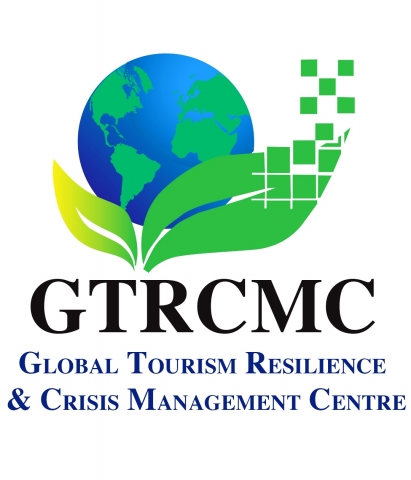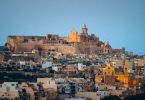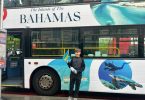Governments have been called on to agree a coordinated global and regional response to the COVID-19 pandemic to protect the future of the travel sector and tourism recovery.
Speaking in the latest in a series of Hon. Edmund Bartlett Lectures, leading industry academic and industry figures warned against countries becoming isolationist and protectionist.
The online event earlier this month discussed ‘Geopolitics and the Coronavirus’ and was broadcast globally across 28 media platforms reaching a total audience of 80,000 viewers.
Minister Bartlett, the Jamaican Tourism Minister, said countries must identify long-term sustainable strategies and resist taking one-dimensional approaches to tackling the pandemic.
“We must promote freedom, new public private partnerships,” he said. “Today, we have seen the light at the end of the tunnel.
“Tourism is the great equalizer, it enables societies to interact, builds the capacity to tolerate, creates new norms and reinforces the way forward through respect and tolerance.”
Sir Hillary Beckles, vice chancellor of the University of the West Indies said the Caribbean had set an “excellent example” placing science at the center of its response.
He said this had “unfortunately” been largely overlooked by the global media, and called for the free movement of people, on which the region relies, to be protected.
“We must address the legacies of our vulnerabilities, wherein cultures and peoples are respected, and the free movement of peoples can continue,” he said.
“We are dealing with the relationship between internationalism and nationalism where fundamental decisions are made at the nation state level.
“Tourism is located precisely at the center of a contest, a contest between how a nation seeks to handle policy decisions within the context of an industry that is deeply local but realizing that success can only come at the global level.”
Sir Hillary added that in tacking COVID-19, climate change and chronic disease, multilateral and not bilateral, solutions are required.
“A multidimensional approach is needed for the tourism sector which is deeply globalized,” he added.
“Tourism is at the intersection between the politics of globalization and the economics of nationalism.
“Seeing that the travel model is under enormous stress, we must commit to a multidimensional model where we allow tourism to thrive in a post COVID environment.
“We will have to speak about innovation, to change to a multidimensional model centered around world peace, world freedom, new tourism products and new access to value to allow this industry to have its greatest impact.”
Ambassador Young-shim Dho, chair of the United Nations SDGS Advocate Alumini, praised South Korea’s response to the pandemic.
She said full lockdowns can only work where governments retain trust among citizens that they will test, trace and treat, and guarantee the supply of adequate protective equipment.
And the ambassador added a COVID-19 vaccine must be made available equitably and affordably around the globe, echoing demands made at the United Nations General Assembly and proposals being put forward by the WTTC (World Travel and Tourism Council).
“G20 or G8 countries cannot be allowed to hold vaccines when available, so governments need to come together to plan accordingly,” she said.
Speaking about the pandemic response in Africa, Professor James Kungu, executive director of the Global Travel, Resilience and Crisis Management Centre (GTRCMC) at Kenyatta University, Kenya said:
GOT NEWS? click here
Google News, Bing News, Yahoo News, 200+ publications
“Africa will have to focus on innovation and technology, while in the short term focus must be on domestic and regional tourism development.
“We will need to foster resilience, specifically through safety and security as well as crisis communication and communication of the African image.
“COVID-19 has put the issue of globalization in the center of the conversation. Tourism is an expression of freedom but with the current situation it is driving the movement towards deglobalization.”
Prof Kungu called for collaboration within the continent of Africa to create a greater sense of solidarity and increase the trust between regions that have been in conflict.
“Tourism can promote solidarity and trust in geo conflict zones, therefore this aspect of geopolitics needs to be in the conversation to bring people together.
“Tourism can play an especially important role to move forward. Fragmentation across the continent must be addressed.
“There is light at the end of the tunnel. We have not been impacted as badly [by COVID-19] as we could have been. God has been on our side.”
Europe has become more insular and localized as the result of COVID-19, said Lee Miles, professor of crisis management and disaster recovery at Bournemouth University.
And he said this has compounded the negative impact on tourism of existing issues like migration, Brexit and the free movement of people.
Prof Miles called for government to balance business and economic resilience with safety and avoid protectionist policies that are not beneficial to travel and tourism.
“We need to move away from covid-19 being a crisis and towards it being a part of sustainable development agenda in a COVID endemic world,” he said.
“The state has been central to the way we deal with globalized threats, but these needs and measures have not been seen before.
“Crisis management pandemic plans had to be adapted which has forced the countries of Europe to become very localized. We have gone into an insular perspective.
“This is down to geopolitics with negative impact on tourism, a central feature being the trimming of globalization, particularly on the free movement of people.
“European governments have been influenced by the geopolitical issues of migration, Brexit, and COVID-19 non-compliance.”
The Edmund Bartlett lecture was organized by the GTRCMC in partnership with the Global Travel and Tourism Resilience Council, the Tourism Enhancement Fund and the Tourism Linkages Council.
It was chaired by Professor Lloyd Waller, GTRCMC executive director. “Governments have been forced to make difficult decisions, naturally choosing national interests over global interests which has led to increased insularity,” he said. Rebuilding.travel is a partner with GTRCM.
#rebuildingtravel
MEDIA CONTACT: Jamaica Ministry of Tourism, Corporate Communications, 64 Knutsford Boulevard, Kingston 5, Tel: 920-4926-30, Fax: 920-4944






